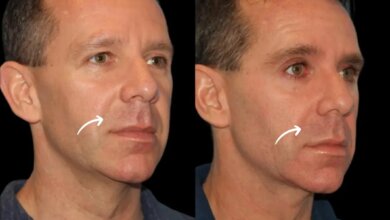How to Tell the Difference Between Urgent and Routine Dental Needs
Not every dental problem needs immediate attention, but knowing when to seek urgent help can protect your teeth and save you from long-term complications. At Tamworth Dental Care, we aim to help patients understand the difference between what can wait and what requires fast action.
If you’ve ever searched for a Dentist near me and felt unsure whether your issue was serious or not, this guide will help you decide when to contact your tamworth dental clinic right away.
What Counts as an Urgent Dental Need?
When it comes to your oral health, not every dental issue is created equal. Some problems can wait a few days or weeks until your next scheduled visit, while others demand immediate attention. Knowing the difference between urgent and routine dental needs can save your smile—and possibly your overall health.
Understanding what counts as an urgent dental need can help you make better decisions about when to call your dentist and when it’s safe to wait. This guide breaks down the signs of a dental emergency, how to differentiate them from routine care, and why timely treatment matters.
Urgent Dental Problems: When to Seek Immediate Help
Urgent dental needs often involve pain, infection, trauma, or bleeding—issues that, if left untreated, could result in permanent damage or more serious health complications. If you’re experiencing any of the following symptoms, you should contact Tamworth Dental Care or your nearest emergency provider right away:
1. Severe Toothache That Doesn’t Go Away
A persistent, throbbing toothache is often a sign of a deep cavity, nerve damage, or infection. If over-the-counter pain relievers don’t help and the pain is disrupting your sleep or daily routine, it’s time to see a dentist immediately.
2. Swelling in the Gums or Face
Swelling—especially if it’s spreading to the cheek, jaw, or neck—could indicate an infection or abscess. Swelling accompanied by fever, difficulty swallowing, or breathing can become life-threatening and requires emergency care.
3. Knocked-Out or Loose Tooth
If you’ve had a tooth knocked out due to an accident or sports injury, you need to act fast. A dentist may be able to reimplant the tooth if you get help within an hour. A loose tooth without trauma can also be a sign of severe gum disease or infection.
4. Broken or Cracked Teeth With Pain
A cracked tooth may expose the nerve, leading to sharp pain and sensitivity. If left untreated, the damage can worsen and may result in tooth loss or infection.
5. Dental Abscess or Infection
An abscessed tooth may cause intense pain, fever, swollen glands, and a bad taste in your mouth. This infection can spread quickly to other parts of the body, so don’t delay treatment.
6. Uncontrolled Bleeding in the Mouth
If your mouth is bleeding and it won’t stop after applying pressure, especially following dental work or an injury, it’s time to seek immediate help. Uncontrolled bleeding can be a sign of trauma or a clotting issue.
What Is Considered Routine Dental Care?
Not all dental issues are emergencies. Many can be handled during a scheduled appointment without risk to your health. Routine care plays an essential role in maintaining long-term oral health and preventing more serious problems later on. Common examples include:
-
Regular Check-Ups and Cleanings
Preventative care like exams, X-rays, and cleanings help detect issues early before they become emergencies. -
Mild Tooth Sensitivity or Small Cavities
These can usually wait a few days or weeks without risk, though they should still be treated to prevent worsening. -
Cosmetic Procedures
Whitening, veneers, and other aesthetic treatments can enhance your smile but are not time-sensitive. -
Replacing Fillings or Crowns That Are Still Intact
If they’re not causing discomfort or showing signs of failure, you can schedule a future appointment. -
Mild Gum Irritation or Early Gingivitis
While important to treat, these conditions typically don’t require urgent attention unless they progress into severe periodontal disease.
How to Tell the Difference
If you’re unsure whether your issue is urgent or routine, ask yourself these quick questions:
-
Is there intense or persistent pain or swelling?
-
Did the issue occur suddenly due to trauma or injury?
-
Is the problem interfering with eating, talking, or sleeping?
-
Is there bleeding that won’t stop on its own?
If you answered yes to any of these, it’s best to treat the situation as urgent. When in doubt, call Tamworth Dental Care. Their professional team can assess your symptoms over the phone and advise whether you need emergency treatment or can wait for a regular appointment.
Why It Matters
Recognizing the difference between urgent and routine dental issues ensures that you receive the right care at the right time. Delaying urgent treatment can lead to worsening pain, higher costs, and even long-term health problems. On the other hand, overloading emergency appointments with non-urgent concerns can prevent those in real pain from getting timely help.
By understanding the signs and acting accordingly, you protect both your health and the integrity of your dental care system.
Need Help?
If you’re in doubt or experiencing dental discomfort, don’t hesitate to reach out. Contact Tamworth Dental Care—your health and peace of mind are worth it.
Count on Tamworth Dental Care for Both
Whether you need routine treatment or urgent attention, tamworth dental care is here to help. Our experienced team is trained to handle everything from regular cleanings to emergency dental needs. And if you’re searching for a reliable Dentist near me, look no further.
Your health and comfort come first at tamworth dental clinic.
Call us today to schedule your visit or get fast help when it matters most.
for blog posting visit : The Globalnewz








